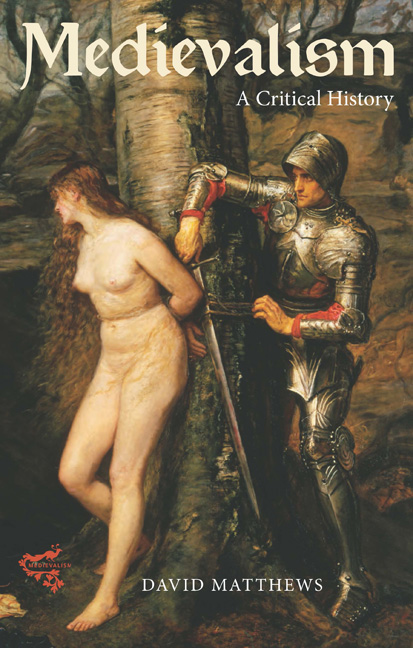Book contents
- Frontmatter
- Dedication
- Contents
- List of Illustrations
- Preface
- Acknowledgements
- Abbreviations
- Introduction
- I TAXONOMIES
- II TIME, SPACE, SELF, SOCIETY
- III HISTORY AND DISCIPLINE
- Conclusion Against a Synthesis: Medievalism, Cultural Studies, and Antidisciplinarity
- Afterword
- Appendix I The Survey of Reenactors
- Appendix II Key Moments in Medievalism
- Bibliography
- Index
Introduction
- Frontmatter
- Dedication
- Contents
- List of Illustrations
- Preface
- Acknowledgements
- Abbreviations
- Introduction
- I TAXONOMIES
- II TIME, SPACE, SELF, SOCIETY
- III HISTORY AND DISCIPLINE
- Conclusion Against a Synthesis: Medievalism, Cultural Studies, and Antidisciplinarity
- Afterword
- Appendix I The Survey of Reenactors
- Appendix II Key Moments in Medievalism
- Bibliography
- Index
Summary
The ghosts of the Middle Ages are unquiet. In the cinema Robin Hood, embodied by Russell Crowe, once more bends his bow in Ridley Scott's film. J. R. R. Tolkien's dwarves, drawn from Old Norse legend, seek the gold stolen by a Beowulfian dragon in The Hobbit: An Unexpected Journey (2012) and its sequel, The Desolation of Smaug (2013). Turn on the television, where the Wars of the Roses are replayed in the BBC's The White Queen (2013) and the cathedral of Kingsbridge rises in Pillars of the Earth (2010), a series based on Ken Follett's bestselling novel of the same name (1989); dark-age power struggles are played out in HBO's medievalist fantasy, Game of Thrones (2011–) and Channel 4's Camelot (2011). Open a newspaper and a journalist will be criticising the medieval practice of torture, somewhere in the world; politicians, promising an end to the medieval practices of this or that Islamic regime; managers of football teams, regretting the application of medieval justice to their players. In Britain, a man walks from Worthing in Sussex to Buckingham Palace to attend the royal wedding of 2011 in full medieval armour with sword and shield. Turn a corner in Melbourne, Manchester, Mumbai and there is a gargoyle, a pointed arch, a crenellated roof, a machicolated wall, ghostly memories of the Middle Ages shadowing modernity.
It is the task of medievalism studies, a rising field for the past three decades, to hunt these revenants. The field is, to quote from the definition attributed to T. A. Shippey on the website of the journal Studies in Medievalism, “the study of responses to the Middle Ages at all periods since a sense of the mediaeval began to develop.” Medievalism studies is usually distinguished from its long-established parent, medieval studies, which involves study of the actual Middle Ages: the period's literatures, languages, history, architecture, wars, religions and people, from peasants to popes.
- Type
- Chapter
- Information
- MedievalismA Critical History, pp. 1 - 10Publisher: Boydell & BrewerPrint publication year: 2015



